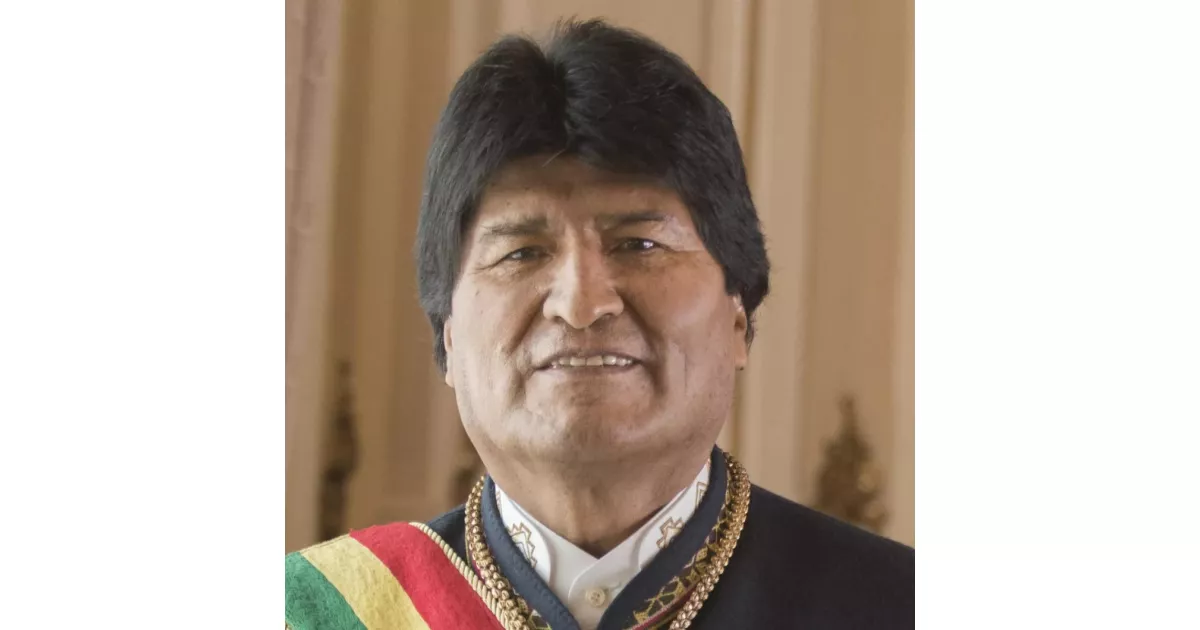Resilience and perseverance in the journey of Evo Morales. A timeline of obstacles and growth.
Evo Morales is a Bolivian politician and former president (2006-2019), notable as the country's first indigenous president. As a former cocalero activist and trade union organizer, he led the Movement for Socialism (MAS) party and implemented left-wing policies aimed at improving the socioeconomic conditions and legal protections for Bolivia's indigenous population. His administration also worked to counter the influence of the United States and resource-extracting multinational corporations within Bolivia.
1980: García Meza Coup
In 1980, the far-right General Luis García Meza seized power in a military coup, leading Evo Morales to become more politically active.
1981: Campesino Murdered
In 1981, a campesino was murdered by soldiers, solidifying Morales's relationship with politics.
1982: Zuazo Took Power
In 1982, Hernán Siles Zuazo and the UDP took power and implemented neoliberal reforms with US support.
1984: Secretary of Records
From 1984 to 1985, Morales served as Secretary of Records for the movement, and in 1984 he was present at a roadblock where 3 campesinos were killed.
1989: Villa Tunari Commemoration and Attack on Morales
In 1989, Morales spoke at the Villa Tunari massacre commemoration and was later beaten and left for dead by UMOPAR agents.
1991: Protests Against Coca Eradication
From 1984 to 1991, the sindicatos protested against the forced eradication of coca through various means.
1993: General Election and Sánchez Presidency
Following the 1993 general election, Gonzalo Sánchez de Lozada became president and implemented economic liberalization policies.
March 1994: Coca Eradication Agreement
In March 1994, Sánchez agreed with the U.S. DEA to eradicate coca in exchange for US aid, which Morales opposed.
August 1994: Arrested and hunger strike
In August 1994, Evo Morales was arrested and began a dry hunger strike to protest his arrest.
April 1995: Arrested at Andean Council Meeting
In April 1995, Morales was arrested during a meeting of the Andean Council of Coca Producers and accused of plotting a coup, though no evidence was found.
1998: Forms Political Instrument for the Sovereignty of the Peoples (IPSP)
In 1998, a leadership contest between Alejo Véliz and Morales led to a schism in the ASP. Morales and his supporters split to form their own party, the Political Instrument for the Sovereignty of the Peoples (IPSP). The movement's bases defected en masse to the IPSP, leaving the ASP to crumble. In 1998, Morales led another cocalero march from El Chapare to la Paz, and came under increasing criticism from the government.
2000: "The Water War"
In 2000, the Tunari Waters corporation doubled the price at which they sold water to Bolivian consumers, resulting in a backlash from leftist activist groups, including the cocaleros. Activists clashed with police and armed forces, in what was dubbed "the Water War", resulting in 6 dead and 175 wounded.
August 2001: Banzer resigns, Quiroga takes over
In August 2001, Banzer resigned due to terminal illness, and Jorge Quiroga took over as president. Under U.S. pressure, Quiroga sought to have Morales expelled from Congress by saying that Morales' inflammatory language had caused the deaths of two police officers in Sacaba near Cochabamba.
2002: Morales expelled from Congress
In 2002, Morales was expelled from Congress. 140 deputies voted for Morales' expulsion, which came about in 2002. Morales said that it "was a trial against Aymara and Quechas".
2003: Increase in Coca Cultivation
From 2003, the area used for growing coca illicitly in Bolivia increased year on year.
2003: Bolivian Gas Conflict
In 2003, the Bolivian gas conflict broke out as activists protested against the privatization of the country's natural gas supply and its sale to U.S. companies below the market value. Activists blocked off the road into La Paz, resulting in clashes with police. 80 were killed and 411 injured. Morales did not take an active role in the conflict, instead traveling to Libya and Switzerland.
2004: MAS Becomes Largest National Party
In the 2004 municipal election, the MAS became the country's largest national party, with 28.6% of all councilors in Bolivia. However, they failed to win the mayoralty in any big cities. In Bolivia's wealthy Santa Cruz region, a strong movement for autonomy had developed, and they considered armed insurrection to secede from Bolivia should MAS take power.
July 2006: Referendum on regional autonomy held
In July 2006, a referendum on regional autonomy was held. The four eastern departments voted in favor of autonomy, but Bolivia as a whole voted against it by 57.6%.
January 2007: Clashes in Cochabamba
In January 2007, clashes in Cochabamba between activist groups led to fatalities, with Evo Morales's government sending in troops to maintain the peace.
April 2007: Attends South American Energy Summit and disputes over biofuel
In April 2007, Evo Morales attended the first South American Energy Summit in Venezuela, arguing over the issue of biofuel. He had a dispute with Brazilian President Lula over bringing Bolivia's refineries under state control.
May 2007: Withdrawal from International Center for Settlement of Investment Disputes
In May 2007, Bolivia withdrew from the International Center for the Settlement of Investment Disputes, becoming the first country in the world to do so. Evo Morales stated that the institution had consistently favored multinational corporations in its judgments. Bolivia also refused to join the Free Trade Area of the Americas.
May 2008: Eastern departments push for autonomy, referendum on recalling Morales
In May 2008, eastern departments in Bolivia advocated for greater autonomy, a request rejected by Morales' government. A referendum on recalling Morales took place, achieving an 83% turnout, with 67.4% voting to ratify Morales. The National Council for Democracy (CONALDE) initiated destabilization campaigns, leading to unrest in eastern Bolivia. Radical autonomists established blockades and clashed with pro-government supporters. Some formed paramilitaries, bombing state companies and attacking indigenous communities, culminating in the Pando Massacre. Santa Cruz Governor Rubén Costas accused Morales of being a totalitarian dictator. Foreign commentators speculated on potential civil war.
September 2008: Morales expels U.S. ambassador
In September 2008, Morales accused the U.S. ambassador to Bolivia, Philip Goldberg, of conspiring against democracy after it was revealed that USAID had supplied $4.5 million to pro-autonomist departmental governments. Morales ordered Goldberg to leave the country. The U.S. government responded by expelling Bolivian ambassador to the U.S., Gustavo Guzman. Bolivia then expelled the U.S. Drug Enforcement Administration (DEA) from the country, leading the U.S. to withdraw their Peace Corps. Chávez showed solidarity by expelling the U.S. ambassador Patrick Duddy. UNASUR convened a meeting, expressing support for Morales' government.
2008: Coca Production Tonnage
From 2008 to 2018, the estimated tonnage of coca produced for commercial purposes increased from 19,334 tonnes to 24,178 tonnes, an overall increase of 31.85%.
2008: Expulsion of the DEA
In 2008, two years into his first term as president, Evo Morales expelled the Drug Enforcement Administration (DEA) from Bolivia.
May 2010: Government announces 5% minimum wage increase
In May 2010, Morales' government announced a 5% rise in the minimum wage, which the Bolivian Workers' Central (COB) deemed insufficient, leading to a general strike and clashes with police. The government accused protesters of being pawns of the right.
August 2010: Violent protests break out in Potosí
In August 2010, violent protests erupted in southern Potosí due to widespread unemployment and a lack of infrastructure investment. These demonstrations highlighted growing discontent within Morales' support base.
December 2010: Government cuts subsidies for gasoline and diesel fuels
In December 2010, the government cut subsidies for gasoline and diesel fuels, which raised fuel prices and transport costs. Protests led Morales to nullify the decree, responding that he "ruled by obeying".
October 2011: Law 180 prohibits road construction through TIPNIS
In October 2011, Morales passed Law 180, prohibiting further road construction through the Isiboro Sécure National Park and Indigenous Territory (TIPNIS), following widespread protests. However, the government proceeded with a consultation, eventually gaining consent from most communities to allow the highway to be built with concessions.
2011: Increase in Coca Cultivation
From 2003 to 2011, the area used for growing coca illicitly in Bolivia increased year on year.
June 2012: Police protests against anti-corruption reforms
In June 2012, Bolivia's police launched protests against anti-corruption reforms to the police service. They burned disciplinary case records and demanded salary increases. Morales' government relented, canceling many of the proposed reforms and agreeing to the wage rise.
2012: Indigenous Representation in Cabinet Decreases
By 2012, only 3 of the 20 cabinet members identified as indigenous, as Morales replaced many of the indigenous members with trained middle-class leftist politicians.
2012: Accusations of Drug Links
In 2012, the Brazilian magazine Veja accused Evo Morales and his then minister Juan Ramón Quintana of providing raw material for drug production destined for Brazil. Senator Roger Pinto sought asylum, citing evidence of corruption and drug trafficking at the highest levels of Morales' government.
May 2013: Government permits hydrocarbon exploration in national parks
In May 2013, the government announced that it would permit hydrocarbon exploration in Bolivia's 22 national parks, to widespread condemnation from environmentalists.
July 2013: Morales' plane forced to land amid Snowden asylum offer
In July 2013, Morales attended a summit in Moscow where he said he was open to offering political asylum to Edward Snowden. On July 2, 2013, his presidential plane was forced to land in Austria when Portuguese, French, Spanish, and Italian authorities denied it access to their airspace. Foreign Minister David Choquehuanca said the European states acted on unfounded suspicions that Mr. Snowden was on the plane. The OAS and UNASUR condemned the actions, and France apologized for the incident the next day. Snowden suggested that the forced grounding may have influenced Russia's decision to allow him to leave the Moscow airport.
2013: Study on Democratic Backsliding
According to a 2013 study, Evo Morales and his Movement Toward Socialism were accused of using trumped-up charges against opposition politicians, leading to imprisonment, exile, and intimidation, thereby undermining democracy.
2013: Constitutional Court ruling allows Morales to run for a third term
In 2013, the Plurinational Constitutional Court ruled that Morales' first term did not count towards the term limit, because it had taken place prior to the ratification of the 2009 constitution. This ruling allowed Morales to run for a third term as president, sparking criticism from opposition politicians.
2014: EU Study on Coca Use
A 2014 study by the EU estimated that only 14,700 hectares of coca were used for chewing and teas in Bolivia.
2015: Alleged Statutory Rape
In 2015, the alleged statutory rape for which Morales faces charges occurred. The event is central to the arrest order issued in January 2025.
2015: Low in Coca Cultivation
In 2015, the area used for growing coca illicitly in Bolivia reached a 12-year low at 20,400 hectares.
February 2016: Rumors of child and favoritism surface
In early February 2016, rumors emerged that Morales had had a child with Gabriela Zapata Montaño and granted favors to the Chinese company she worked for. Morales stated that they had a son who died in infancy, he denied granting any favors, and he had not been in contact with Zapata Montaño since 2007. Zapata Montaño was later sentenced to ten years in prison for illegal financial behavior.
February 2016: Referendum held on constitutional amendment
On February 2016, a referendum was held on a constitutional amendment that would have allowed presidents to serve three consecutive terms, potentially enabling Morales to run for a fourth term. The proposed amendment was narrowly rejected.
2017: Law Increasing Legal Coca Land
In 2017, Evo Morales signed a law that increased the legal amount of land in Bolivia designated to coca farming from 12,000 hectares to 22,000 hectares.
2018: Increase in Coca Farming Area
Between 2018 and 2019, the area used for coca farming in Bolivia increased from 23,100 hectares to 25,500 hectares, an increase of 10.39%, prompting concern from the EU.
2018: Criticism from María Galindo
In 2018, Bolivian feminist María Galindo criticized then-President Morales for allegedly using public acts to sexually hook minors, questioning why he would publicly admit this on television.
October 2019: General Election and Mass Protests
On October 20, 2019, a general election was held in Bolivia. Following the election, from October 21, 2019, until late November, mass street protests and counterprotests erupted in response to claims of electoral fraud. The official count gave Morales 47.08% of the votes.
November 2019: Morales Resigned as President
On 10 November 2019, Morales resigned as president, calling his removal "forced" and a "coup," but stated that he wanted to stop bloodshed from election protests. He was later offered political asylum by Mexico.
2019: UN Report on Coca Production
A 2019 UN report indicated that 94% of coca production in the Chapare region of Bolivia did not pass through the designated legal market in Sacaba, and that 65% of coca trade was undocumented.
February 2020: Morales Announced Candidacy
In February 2020, Morales announced his intention to run for a seat in the Plurinational Legislative Assembly in the 2020 Bolivian general election, but was later ruled ineligible by the national electoral tribunal.
May 2020: Relationship Allegations Emerge
In May 2020, Noemí Meneses stated she had been in a romantic relationship with Morales since that month. This was later disputed by authorities who placed her under house arrest. She later claimed she was pressured to testify against Morales.
August 2020: Rape Accusations Against Morales Surface
In August 2020, photographs of Evo Morales with an alleged minor surfaced on social media, leading to accusations of a relationship since she was 14. News organizations linked these accusations to previous comments by Morales about retiring with a quinceañera.
August 2020: Formal Investigation Launched
In August 2020, the Bolivian Prosecutor's Office began a formal investigation into allegations of statutory rape against Evo Morales. Earlier that month, the Ministry of Government informed Okdiario that it had opened a statutory rape investigation. Morales refused to comment.
August 2020: Second Statutory Rape Case Filed
On August 21, 2020, a second unrelated statutory rape case was filed against Evo Morales, alleging he had a child with a 15-year-old. Morales claimed it was part of a "dirty war".
October 2020: Drug Seizures Announced
In October 2020, the FELCN and the interim government announced the seizure of over 12 tons of cocaine and 436 tons of marijuana in the last year, along with the destruction of factories and cocaine laboratories.
December 2020: MAS Candidate Selections
In late November and early December 2020, MAS officials began the process of selecting party candidates to run in the 2021 Bolivian regional elections. In four departments (Chuquisaca, Potosí, Cochabamba, and Pando), candidates for governor endorsed by Morales were not chosen by MAS officials.
2021: MAS Candidate Selections
In late November and early December 2020, MAS officials began the process of selecting party candidates to run in the 2021 Bolivian regional elections. In four departments (Chuquisaca, Potosí, Cochabamba, and Pando), candidates for governor endorsed by Morales were not chosen by MAS officials.
2023: Bolivia Classified as Partly-Free
As of 2023, Freedom House classifies Bolivia as a partly-free democracy, with a score of 66/100, reflecting a decline in democratic freedoms under Morales' leadership.
October 2024: Investigation Continues and Hearing Missed
In October 2024, Justice Minister Cesar Siles stated that the investigation into the alleged statutory rape was ongoing. Morales failed to attend a hearing on the case, leading to plans for his arrest and subsequent demonstrations by his supporters.
October 2024: Morales claimed to have survived an assassination attempt
On 27 October 2024, Morales said that he had survived an assassination attempt against him near a military garrison in Villa Tunari following a gun attack on his vehicle. Interior minister Eduardo del Castillo later accused Morales of staging the incident, and on 1 November, Morales began a hunger strike.
November 2024: Morales Barred From Running in 2025 Election
On November 8, 2024, the Plurinational Constitutional Tribunal barred Evo Morales from running for president in the 2025 Bolivian general election, citing Article 168 of the Constitution, which limits a citizen to two consecutive presidential terms. Morales' lawyers contested the decision as politically motivated.
December 2024: Arrest Warrant Issued
On December 16, 2024, an arrest warrant was issued against Evo Morales on charges of "trafficking" involving a 15-year-old girl.
January 2025: Arrest Ordered in Tarija
In January 2025, a judge in Tarija ordered the arrest of Evo Morales for the alleged statutory rape of a 15-year-old girl in 2015. The judge also froze Morales's assets and banned him from leaving Bolivia.
Mentioned in this timeline

Barack Obama the th U S President - was the...
Nigeria is a West African nation the most populous in...
Venezuela officially the Bolivarian Republic of Venezuela is located on...
Africa is the second-largest and second-most populous continent comprising of...

News encompasses information about current events disseminated through various media...
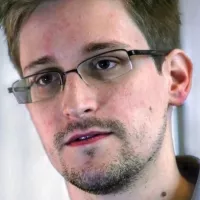
Edward Snowden a former U S computer contractor who is...
Trending
52 minutes ago Hanfmann Advances in Santiago 2026 After Win, Set to Face Carabelli.
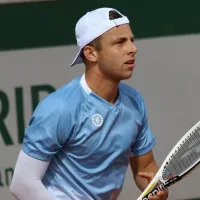
52 minutes ago Griekspoor to face Medvedev in Dubai final: Highlights and predictions surface.
2 hours ago Lesotho: Frontliners help family overcome poverty; South Africa sees tourism boom in 2026.

2 hours ago Sara Eisen on The View: Tense Moments and Financial Expertise Displayed.
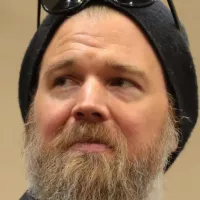
3 hours ago Ryan Hurst's Kratos Revealed in Prime Video's 'God of War' Series: Cast Updates
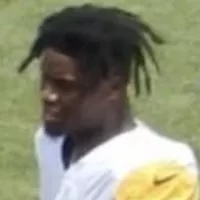
3 hours ago Cowboys to Franchise Tag George Pickens for $28 Million: A Bold Move
Popular

Jesse Jackson is an American civil rights activist politician and...

Barack Obama the th U S President - was the...

Susan Rice is an American diplomat and public official prominent...

XXXTentacion born Jahseh Dwayne Ricardo Onfroy was a controversial yet...

Michael Joseph Jackson the King of Pop was a highly...

Kashyap Pramod Patel is an American lawyer who became the...
